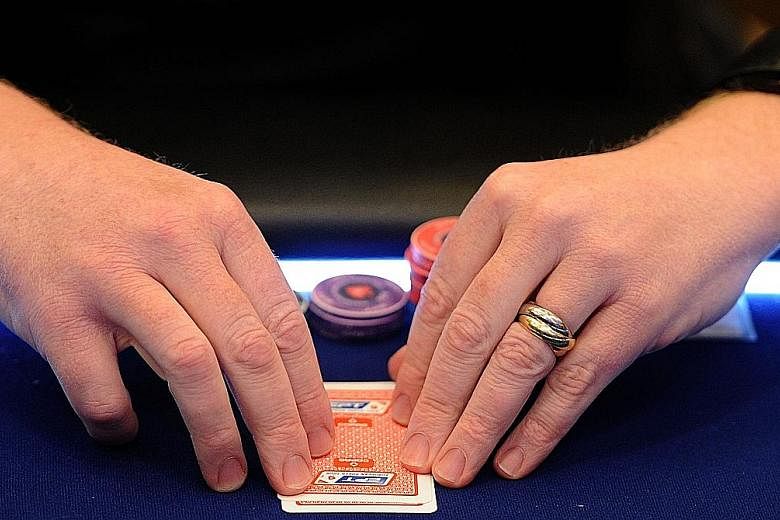MIAMI • A computer has defeated professional poker players for the first time by refining its intuition of the game called Heads-Up No-Limit Texas Hold'em poker, marking a step forward for artificial intelligence, said scientists.
The computer program, named DeepStack, beat 11 professional players recruited by the International Federation of Poker in December last year.
The report in the journal Science describes how the machine bested nearly a dozen players, who were asked to play a 3,000-hand match over a period of four weeks.
"DeepStack beat each of the 11 players who finished their match, with only one outside the margin of statistical significance, making it the first computer program to beat professional players in Heads-Up No-Limit Texas Hold'em poker," said the study.
DeepStack won by bridging "the gap between approaches used for games of perfect information - like those in checkers, chess and Go - and those used for imperfect information games".
Imperfect games require reasoning because players are unaware of at least some of the others' moves.
DeepStack developed a form of "intuition" that was "honed through deep learning to reassess its strategy with each decision", the report noted.
"Poker has been a longstanding challenge in artificial intelligence," said principal investigator Michael Bowling, a professor in the University of Alberta's science faculty.
"It is the quintessential game of imperfect information in the sense that the players don't have the same information or share the same perspective while they're playing."
Other scientists on the program include those from Charles University in Prague and Czech Technical University.
DeepStack relies on a technique called continual re-solving, which allows the program to determine the correct strategy for a particular poker situation but does not force it to "think" about the entire game.
"We train our system to learn the value of situations," said Prof Bowling. "Each situation itself is a mini poker game.
"Instead of solving one big poker game, it solves millions of these little poker games, each one helping the system to refine its intuition of how the game of poker works."
DeepStack needs only three seconds of "thinking" time on average.
AGENCE FRANCE-PRESSE

